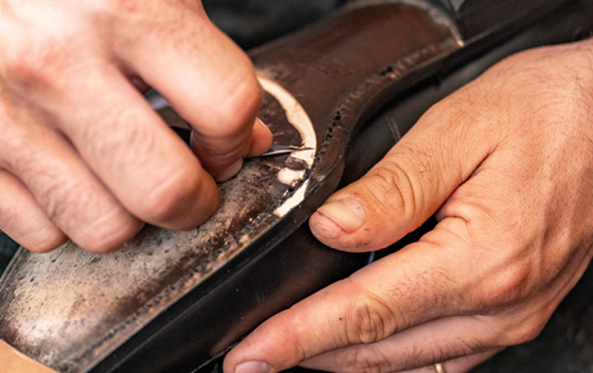
Understanding the anti-waste law for a circular economy (AGEC) in the Clothing, Household Linen and Footwear Sector
Why do your products need to show the Triman sorting logo? What is the purpose of the Waste prevention and Ecodesign Plan? What other legal requirements does the AGEC law introduce?
As a marketer in the textiles and footwear sector, you might need support in reviewing the situation and dealing with any uncertainty. Refashion is here to support you!

What is the purpose of the AGEC law?
In France, the AGEC law No. 2020-105 of 10 February 2020 seeks to reduce waste and promote the circular economy.
In France, the AGEC law No. 2020-105 of 10 February 2020 seeks to reduce waste and promote circular economy.
This initiative accelerates the ecological transition for the Clothing, Household Linen, and Footwear sector. It reinforces their commitment to sustainable development while building on existing efforts.
The implementing measures of the AGEC law are set out in regulatory provisions (decrees and orders).
Your legal obligations
If you operate in the clothing, household linen or footwear sectors, the AGEC law includes five legal requirements you need to know.
1. Consumer information on environmental qualities and characteristics
Article 13 AGEC law
Pursuant to Article R.541-221 VI of the French Environment Code, Refashion provides the information below:
“Refashion considers that no information on the recyclability of clothingtextiles, household linen and footwear needs to be made available to consumers. In consequence, you do not need to include this information in the “Product sheet on environmental qualities and characteristics”.
For further information:
- Explanatory note
- Refashion FAQ
- ↗️The FAQ published by the Ministry for the Ecological Transition on Article 13
Éco-modulations
Refashion will inform you of the procedures for displaying information on bonuses and penalties when you declare the item references eligible for eco-modulation.
2. Environmental labelling
Article 2 of the Climate and Resilience law (repealing Article 15 of the AGEC law)
In France, the environmental labelling of textiles and footwear is provided for in the 2021 Climate and Resilience law. On 14 May 2025, Europe validated the draft decree for labelling in France and authorised its deployment. The environmental labelling of textiles remains voluntary for the moment, and the decree governing its application was published on 1st October 2025.
To find out more about environmental labelling, read our article on the subject!
3. Sorting labels
Article 17 AGEC law
The sorting info and Triman were approved on 1 February 2022 and included in implementing decree No. 2021-835. On 1 February 2023, this label became compulsory on all Clothing, Household Linen and Footwear placed on the market in France.
 To help you implement this sorting info:
To help you implement this sorting info:
Other EPR sectors may also be required to use sorting information signages, with differing characteristics.
↗️ Visit the ADEME website to find out if you are concerned!
4. Legal requirement to display information on the Repair Fund
Article 62 AGEC law
Pursuant to Article L.541-10-4 of the Environment Code, Refashion supports you in displaying information on the Repair Fund, in compliance with legal requirements.
To find out more, go to our dedicated page !
Need help?
Do you have a question about your situation or your legal obligations?
Consult our FAQ or complete the contact form.
A dedicated hotline is open Monday to Friday from 9:00 am to 5:00 pm: +33 1 89 16 94 06





